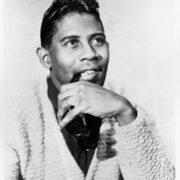Writing a letter of recommendation for a friend can feel like an honor and a responsibility. It’s an opportunity to support someone you care about while helping them advance in their career, education, or personal endeavors. A well-crafted recommendation letter can make a strong impression on potential employers, admissions committees, or other evaluators. Here’s a guide to help you write a thoughtful and effective letter of recommendation for a friend.
Understand The Purpose Of The Letter
Before you start writing a letter of recommendation for a friend, clarify the purpose of the letter itself. Is it for a job, graduate school, a volunteer position, or something else? Understanding the context will help you tailor the letter to meet the specific requirements. Ask your friend for details about the opportunity, such as the job description or program guidelines, so you can align your tone and content with what the recipient expects. Much like creating a resume, tailoring the letter for a specific position or opportunity will ensure that your friend’s recommendation resonates with the reader.
Start With A Strong Introduction
Begin your letter by introducing yourself and your relationship with your friend. Explain how you know them, how long you’ve known them, and in what capacity (e.g., coworker, classmate, or personal friend). This establishes your credibility as a recommender.
For example: “I am pleased to recommend [Friend’s Name] for [specific opportunity]. I have had the privilege of knowing [Friend’s Name] for [X years] as [explain relationship]. Throughout this time, I have consistently been impressed by their [mention key qualities].”
Highlight Their Strengths And Skills
Dedicate the main body of the letter to discussing your friend’s strengths, skills, and accomplishments. Use specific examples to illustrate these qualities. If they’re applying for a job, emphasize relevant professional skills. For academic programs, focus on intellectual capabilities, teamwork, or leadership.
For instance, if your friend is an excellent problem-solver, describe a situation where they tackled a challenge successfully. If they’re applying for a leadership role, recount a time they led a project or motivated a team.
Example: “During our time working together at [Company/Organization], [Friend’s Name] demonstrated exceptional leadership skills. One notable instance was when they spearheaded [specific project], resulting in [positive outcome]. Their ability to [specific skill] sets them apart and makes them a perfect candidate for [opportunity].”
Emphasize Their Character
In addition to skills and achievements, highlight your friend’s personal qualities. After all, you’re currently trying to ‘talk up’ your friend in a professional setting while writing this letter of recommendation. Attributes you might have noticed in your everyday interactions with them such as integrity, empathy, work ethic, and reliability can set them apart. Share anecdotes that showcase their character and demonstrate why they would be a valuable addition to the organization or program.
Example: “Beyond their professional talents, [Friend’s Name] is a person of great integrity and compassion. I recall a time when they [describe an instance that reflects their character]. This dedication to [value] is a testament to their unwavering commitment to making a positive impact.”
Conclude With A Strong Endorsement
How you end your letter of recommendation for a friend is almost as important as how you start. Wrap up your letter with a clear and enthusiastic endorsement of your friend’s candidacy. Reiterate why you believe they are an excellent fit for the opportunity and express confidence in their abilities. Offer your contact information in case the recipient wants to follow up for more details.
Example: “In conclusion, I wholeheartedly recommend [Friend’s Name] for [opportunity]. Their [list qualities] and [specific skills] make them an ideal candidate. Please feel free to contact me at [your email] or [your phone number] if you need further information. I am happy to provide additional insights about their qualifications.”
Keep It Professional
Even though you’re writing for a friend, maintain a professional tone throughout the letter. Use clear and concise language, and ensure your letter is free of grammatical or spelling errors. Avoid overly casual phrases or exaggerations that might undermine the credibility of your recommendation.











Comments